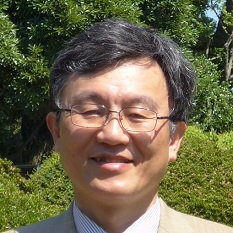一橋大学経済研究所 特任教授
【略歴】
東京大学教養学部卒業後、経済企画庁(現内閣府)、J.P. Morgan勤務等を経て、2009-2024年一橋大学経済研究所教授、2024年より同特任教授。大阪大学博士(国際公共政策)。専門は公共経済学。医療分野では、公衆衛生、社会疫学、産業医学のテーマに関心がある。子供期の社会経済的環境の健康への影響、職場環境とストレスとの関係、介護者のメンタルヘルスの決定要因、社会関係資本と健康との関係など、医学と経済学・社会学が「相互乗り入れ」できるテーマの論文執筆が最近の主な仕事。著書に、『健康の社会的決定要因』(岩波書店、2025年)、『経済学の思考軸』(ちくま新書、2024年)、『日本人の健康を社会科学で考える』(日本経済新聞出版、2021年)、『くらしと健康』(岩波書店、2018年)、『「幸せ」の決まり方』(日本経済新聞出版社、2014年)、『再分配の厚生分析』(日本評論社、2010年)等。
【委員会等】
2020年4月-現在 中央社会保険医療協議会会長
【最近の研究成果】
- Takashi Oshio and Ruru Ping, “Can cessation of caregiving for parents relieve family caregivers’ psychological distress? A longitudinal study using 17-wave nationwide survey data in Japan,” Journal of Epidemiology, 2025, 35 (4), 187-194. https://doi.org/10.2188/jea.JE20240190
- Takashi Oshio, Kemmyo Sugiyama, and Toyo Ashida, “Informal caregivers’ benefits of residing in a neighborhood with high social participation: a multilevel analysis in Japan,” Applied Research in Quality of Life, 2025, 20, 161-175. https://doi.org/10.1007/s11482-024-10399-6
- Shizuka Shimabukuro, Takashi Oshio, et al., “A pragmatic randomized controlled trial of the effectiveness and cost effectiveness of Well Parent Japan (WPJ) in routine care in Japan: the Training And Nurturing Support FOR Mothers (TRANSFORM) study,” Journal of Child Psychology and Psychiatry, 2024, 65 (12), 1624-1637. https://doi.org/10.1111/jcpp.14007
- Takashi Oshio, Kemmyo Sugiyama, and Toyo Ashida, “Can social participation reduce and postpone the need for long-term care? Evidence from a 17-wave nationwide survey in Japan,” Applied Research in Quality of Life, 2024, 19, 1293-1308. https://doi.org/10.1007/s11482-024-10288-y
- Takashi Oshio, “Evolution of psychological distress with age and its determinants in later life: evidence from 17-wave social survey data in Japan,” BMC Public Health, 2024, 24, 2377. https://doi.org/10.1186/s12889-024-19912-w
研究業績・経歴詳細(一橋大学 研究者情報)
